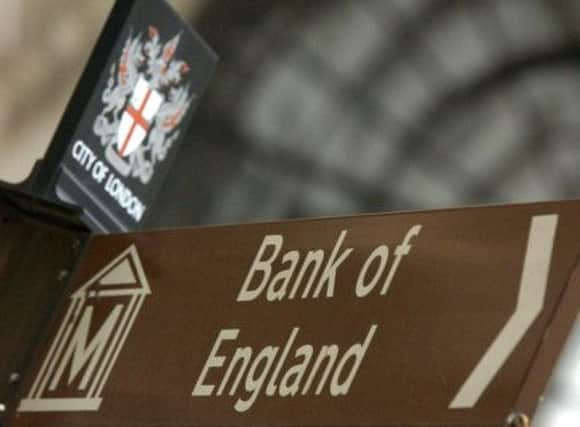Leaders: Memo to the new Bank governor


He is seen as an outsider with a free hand and with a bias towards more monetary loosening. But the problems he faces are massive and complex. An early toning-down of expectation may be no bad thing.
It should be borne in mind that the Bank has been pursuing the most radical policies in its history. It has slashed interest rates to historically ultra-low levels of 0.5 per cent. It has unleashed some £375 billion of monetary stimulus through Quantitative Easing (QE). And while purporting to target a low level of 2 per cent inflation, it has presided over a breach of this target for most of the past four years. Bank policy since the onset of the financial crisis could hardly have been more radical.
Advertisement
Hide AdAdvertisement
Hide AdUnlike the central bank of Canada, interest rate policy is set by monthly vote taken by a Monetary Policy Committee (MPC). And it is no pliant tool. In recent months outgoing governor, Sir Mervyn King, was consistently outvoted in his desire for further QE. Mr Carney must persuade the eight other members of the MPC of the merits of his recommendations.
All that said, there is little doubt that improving the flow of bank lending to the business sector should be an early priority to help lubricate economic recovery.
One suggestion today by the New Economics Foundation is that Mr Carney should swap bond-buying for more direct intervention. It calls on the new Bank governor to be given a wider remit than previous governors and adopt “strategic QE” – investing in home building and energy efficiency, infrastructure and small business lending through targeted bonds. “Strategic QE”, runs the argument, would enable the Bank to maintain independence and control over inflation whilst more effectively supporting the government’s economic objectives.
The problem here is that it assigns to the Bank decisions that properly reside in the realm of fiscal policy and would considerably shorten the arm of central bank independence. It would also open the Bank to intense lobbying from other sectors who might feel more deserving of the Bank’s largesse. And there is no guarantee that funds so targeted would automatically be taken up. It is confidence or the lack of it that has been holding back business investment, not shortage of capital by itself.
However, Mr Carney could usefully start by seeking answers to searching questions on why QE and Funding for Lending are not working as expected – before resorting to a further increase in both – and what might be done to enable them to work in the manner intended.
A prayer answered
For ambitious Church of Scotland ministers, struggling with a modest stipend and beleaguered by divisions and controversies, the advertisement for a new minister of St Columba’s at St Helier on Jersey with its sunshine, 20 per cent tax rate and no VAT, cannot but appeal. What other posts around the world might similarly tempt ministers?
New Zealand would seem to offer considerable attractions. And there may be opportunities for plenty of sun and low tax in Dubai, though women ministers may find the prevailing culture problematic. However, the
following may be the dream post for many:
“A vacancy has arisen at the Sunnyside Kirk, Seven Mile Beach, Grand Cayman for an enterprising Church of Scotland minister with the appropriate physique and skill sets.
Advertisement
Hide AdAdvertisement
Hide Ad“The islands have a population of some 56,000 souls, representing a mix of more than 100 nationalities. The islands are almost exclusively Christian with large numbers of Presbyterians.
“Grand Cayman enjoys a tropical marine climate, with warm sunshine. The church is close to the capital of George Town on the south west coast.
“The islanders enjoy the highest per capita living standards in the Caribbean. The successful applicant will pay no income tax, capital gains tax, or corporation tax Potential drawbacks: A major natural hazard is the tropical
cyclones that form during the Atlantic hurricane season from June to November. And the successful applicant will need strong arms, to polish every day the several hundred brass name plates on the kirk door as Grand Cayman has more registered businesses than people.”